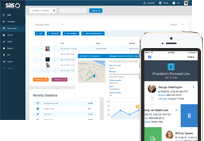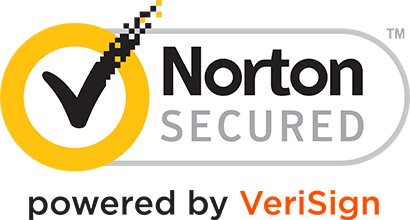- Log In
- Support
- Company
- Contact Us
- Live answers @ 1-888-532-4794
What the Heck Is An Answering Service?

As someone who works for an answering service, and as someone who tries to explain to other people (aka my grandmother) what it is that I do, it was brought to my attention that not everyone knows what an answering service actually is. “What?!” I proclaimed. “How could you not know what an answering service is?” But then it dawned on me – if you don’t use one, then why would you need to know what it is?
So… What is an Answering Service?
To put it simply, an answering service is a type of service that can manage both inbound and outbound business communications for various industries. Communications can can include answering phone calls, responding to emails, replying to text messages, transferring calls, cold calling, etc. This is interesting because the phrase Answering Service, taken at face value, would only reference the ability to answer calls, when in fact an answering service does much more than that!
Answering services go by a few different names, some of which can be used interchangeably, while other definitions should be used for the specific service they represent. For example:
- Virtual receptionist service: Usually companies who refer to themselves as virtual receptionists are performing the same tasks as answering services, so these terms often refer to the same thing.
- Virtual office service: While the basic functions of a virtual office are the same as an answering service, where virtual office providers differentiate themselves is by offering mailing addresses, meeting rooms, and short term office space.
- Automated answering service: Automated answering services usually don’t involve any live agent support and aren’t technically answering services. They are more IVR, or Interactive Voice Response providers. Automated answering services would allow callers to leave messages, or go through automated prompts in order to receive more information (e.g., for directions, press 1, for pricing, press 2).
- Internet answering service: Answering services will often have internet answering service capabilities, but a true internet answering service is not always an answering service. If a company is defined as an internet answering service, they will offer email support, chat support, and social media response – support channels that are internet based. They will usually not offer phone support, or live operator service. This is different from an answering service which, at it’s core, offers live operator support and may offer internet answering services as companions or add on services to the core live agent service.
- Call Center: Call centers will typically have all of the capabilities of an answering service, but an answering service usually does not have all of the capabilities of a call center. Call centers usually employ many more agents than an answering service, handle outbound calls (like telemarketing calls), and offer dedicated agents where segmented groups of agents will only be answering your calls.
Where Did They Come From?
The first call center was established in 1957 and was owned by Time Inc. to help increase magazine subscriptions. By the 60’s, Private Manual Branch Exchanges (PMBXs) were invented, which allowed receptionists to manually connect callers via giant switchboards. Eventually manual systems evolved into automatic systems, like IVR, which transferred callers automatically. Come the 90’s, technology really started to take off with the invention of the internet, which led companies to start creating websites for their customers. So, the call center atmosphere turned more into providing customer and technical support for callers as opposed to just transferring them to the appropriate place.
Fast forward to present day, where technology is evolving at lightning speeds and is forcing industries, like answering services, to evolve with them. Now, instead of pressing 1 for sales and 2 for support, you can just speak into your phone and the system will route you to the right place accordingly. In addition, instead of just taking messages, answering services now can schedule appointments, dispatch calls, process orders online, and integrate with CRMs, in addition to taking messages and answering questions. If you have leads to call, you can also have your answering service make those outbound calls for you, which takes a lot off of your plate. If you can have a whole team of people doing that for a small portion of what you would pay one person in house to do the same job, why wouldn’t you jump on that opportunity?
Who Uses Them?
While there are some industries that stick out more to people in terms of using a service, the truth is that any industry can benefit from using one. A (small) list of examples include:
- Medical (doctors, dentists, pediatricians, obgyns, etc.)
- Veterinarians/Animal Hospitals
- HVAC
- Plumbing
- Restoration/Construction
- Funeral
- Transportation (limousines, taxis, party busses, etc.)
- Landscaping
- Marketing/Advertising
- Beauty Salons
- Property Management/Real Estate
- Accounting/Tax Services
- Legal (criminal lawyers, injury lawyers, divorce lawyers, etc.)
- Entertainment (DJs, party planners, etc.)
- Non-Profit (associations, churches, shelters, etc.)
- Education
- IT (computer repair, help desks, etc.)
- Financial (banks, insurance companies, etc.)
- Automobile (car dealerships, car rentals, etc.)
- Locksmith
How Do They Work?
Answering services work by using call forwarding, which most phones and phone providers are capable of doing. Call forwarding is probably something you have on your telephone right now but just never knew it. You can see if you have it by dialing *72 followed by a 10 digit number, then calling your phone from another line. If it rang to the other number, you have call forwarding! You’ll just want to dial *73 to take the phone off of forwarding.
Forwarding, when activated, automatically bounces your phone traffic to another destination – much like an email forwarder. With respect to answering services, the service will provide you with a number unique to your account. To send your calls to the answering service, you would forward your lines to the number provided. So, when you get phone calls, instead of calls ringing to your office, they will ring at the call center for the operators to pick up. Some phone providers even offer different methods of forwarding, which would allow you to customize when you want to answer your calls vs. when you want the service to answer. For example, if you just want the service to handle your calls after hours, you could have your line automatically forward to the service at 5pm, then back to your office at 8am the next day.
How Do They Know How to Answer my Calls?
There is some planning and coordination that goes into getting a new service up to speed with your protocols, and making sure you are both on the same page. The first step is usually speaking with an intake specialist, and discussing with them your needs and what you are looking to get out of the service. Some questions they might ask you are:
- What type of calls will we be answering for? (emergencies, appointments, orders, etc.)
- How do you want calls handled during business hours as opposed to after hours?
- Are calls being transferred or is the service just sending messages via email/text?
- If callers ask for you, what would you like us to tell them?
- Should we say we are the answering service or would you like us to act like the receptionist?
- Should we screen callers depending on if they are a new or existing customer?
What Features Come With an Answering Service?
Aside from 24/7 call handling, there are a variety of features answering services may (or may not) provide. Some of those features could include:
- On-call dispatching
- Texting, emailing, paging, etc.
- Text response
- HIPAA compliance
- Bilingual support
- Appointment scheduling
- CRM integration
- Mobile App/Online Portal access
While some services may give you access to an online portal, not all of them will offer the same features. For example, with portal access, some services will just store all of your messages, whereas others, like SAS, could give you access to more features like updating your call handling, downloading reports, listening to calls, and rating the operators. Before you hire an answering service you should research what they offer so that you can make sure you are getting the most out of your service.
Are They Expensive?
This is always the most interesting question we get asked at SAS. The reality is, the cost of the answering service is related to how much you are using the service. For example, if you only get 1 phone call a month, the cost will be much lower compared to a business getting 1,000 phone calls over the same period.
In addition, the cost of each answering service will vary, as each provider offers different features. However, it’s safe to say that while some may cost more than others, they are all less expensive than hiring a full time (or even a part-time) employee. Some answering services offer different service platforms, depending on what it is that you need. For example, our advanced service level (the one that comes with all the bells and whistles) charges by the minute, whereas our basic service level (the one you would use for essential call handling) charges by the call. So, you may even have multiple options within one service.
Answering services are subscription services and will almost always operate on a month to month subscription basis, where you’ll receive your invoice from the service each month. However, some services come with contractual obligations where you are committed to contract with the service for at least a year.
Some services will charge you a base rate plus whatever usage you accrue, or some may charge you a flat rate. However, the services that charge a flat rate may not have all the same features available that other services may offer. These services may also find other ways to make money (like charging holiday fees). So again, you’ll want to make sure to do your due diligence before signing on with a company.
Potential Problems
While answering services can be a great asset to any business, you may encounter some issues along the way. Whether it’s because not enough time went into the initial intake and crucial pieces of information were left out, the costs wound up exceeding what you had originally planned, or the service itself didn’t meet expectations, the point is that they’re not perfect. While no service can promise perfection, a good service will work with you to resolve any issues. For example:
Issue: Calls aren’t being picked up quickly
Resolution: If your calls aren’t getting picked up as quickly as you would like, there are some things that your answering service should be able to do to resolve the issue. For example, many answering services can run answer rate reports that show you a specific snap shot of your answer rate history. This data can show you if there was a random spike in volume, or perhaps a larger issue at hand. If it was not a random spike in volume, they usually can add some sort of upfront recording that let the callers know they’ve reached the right place and that someone will be with them shortly. Your service may also be able to move accounts to different distributions that would open your calls up to more operators.
Issue: Higher costs than expected
Resolution: A good service will thoroughly go over their pricing structure prior to taking your billing information. Pricing should be clear cut and as transparent as possible. That means no hidden fees! At Specialty, we have a system in place to ensure you do NOT pay more than you should be. Each plan we offer is broken down into cost effective thresholds, which we help monitor on our advanced service level. See if your service has systems in place to help you save money, or if they are able to send out alerts once you’ve exceeded your usage (similar to cell phone plans that send text alerts when you’re almost out of data).
Issue: Operators making mistakes
Resolution: Virtual receptionists are human, so they may make mistakes from time to time. However, there should be systems in place to help fix those mistakes as they come up. Many services will record phone calls for quality assurance, but other services, like SAS, allow clients to listen to those calls via their mobile app/online portal. From listening to their calls they can rate the operators and leave feedback, which our support team monitors. So, whether the operators are doing a great job and you’d like to provide positive feedback, or if they need a bit more guidance in handling your calls, you can be a part of the coaching process.
Issue: Programming/scripting errors
Resolution: If not enough time went into your initial intake, or if after listening to calls you hear that the call handling isn’t exactly what you had in mind, a good service will work with you to correct any programming issues and add helpful information, like FAQs. However, a great service will take a proactive approach and try to eliminate errors before they happen. Here at SAS we encourage our clients to set aside some time every now and then to review their script with our support team. That way we can walk through the call handling together so that we can get a good idea of what is it they are trying to accomplish, and what the best way to go about doing that is. After all, team work makes the dream work!
The Benefits of Using a Service
If you’re wondering why businesses would pay to outsource their phone calls and not just handle them in house, I would say that you have a valid point. However, I would also tell you that not everyone can answer their phone all the time, and while voicemail is always an option, it’s not a good one. Think about it. If you were just in an accident and trying to find a lawyer, would you leave a message on their voicemail box with the hopes that they’ll hear it soon and call you back? Probably not. You’re most likely going to hang up the phone, and continue calling other firms until someone picks up.
You can take that same example and apply it to literally any other industry. It’s a Friday night in the dead of winter and your heat goes out. Are you going to wait until Monday to have someone come out and fix it? Doubt it. Or maybe your newborn child has a really bad rash. As a new parent, chances are you are not going to wait until the morning to call your pediatrician. Having someone answer your phones 24 hours a day, 7 days a week, 365 days a year is really a godsend for any business, not just ones that handle emergencies. Small businesses can’t always afford to hire more employees to answer their phones, and larger companies may be so busy that they can’t get to every phone call, which is why they seek out an answering service for a helping hand.
There’s no doubt about it that you are the best person to answer your calls, but an answering service is the next best thing. 7 out of 10 people will hang up the phone if they reach a voicemail, which means a 70% chance that you will miss leads and potential business. So, I ask again: why wouldn’t you jump on the opportunity to work with an answering service?
Categories
- Advice (32)
- Answering Service 101 (18)
- Best Practices (10)
- Call Center Jobs (6)
- Call Center Software (20)
- Comparison (2)
- Customer Service (30)
- Funny (31)
- Holidays (19)
- Industry Hacks (19)
- Infographics (53)
- International (1)
- Medical (8)
- News (12)
- Phone Etiquette (2)
- Phones (14)
- Pricing (8)
- Quizzes (3)
- Receptionist (11)
- SAS Products (29)
- Scripting (4)
- Services (5)
- Small Business (25)
- Starting Up (7)
- Tips and Tricks (19)
- Uncategorized (1)
- Videos (19)
- Workplace (6)
Recently writen
- Call Center Script Best Practices: Advanced Script Block Tips to Optimize Your Answering Service
- January 2025 Release Notes – Adjustments to Call Details Timeline, New Scripting Updates, Live Transcription, and more!
- April 2024 Release Notes – Voicemail Greetings, Ability to Access Websites With a Username and Password, and more!
- March 2024 Release Notes – New Add-On, Settings Revamp, and more!
Follow Us
How about a demo?
We'll show you how our web portal works and answer any questions you have about SAS.
Schedule a demo







